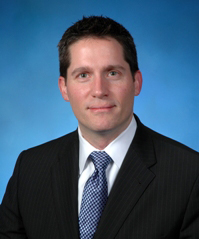By Ann Marie Shambaugh
Carmel Clay Schools teachers remain without a contract for the 2016-2017 school year as two groups continue to battle over who should be their exclusive representative.
State law requires that formal bargaining conclude by Sept. 30, but contract discussions are yet to begin in Carmel. The Indiana Education Employment Relations Board ruled Aug. 28 that bargaining can’t begin until teachers vote on whether to decertify the Carmel Clay Education Association as its union, but that vote can’t take place until IEERB rules on an unfair labor complaint filed by CCEA on Aug. 18.
Unless the parties reach an agreement outside of court, contract negotiations aren’t expected to begin anytime soon. The final hearing on the unfair practice complaint is set for Jan. 25.
“This is unfortunate. We are not getting raises or any benefits of a new contract,” said Pete O’Hara, a Carmel High School teacher and CTA president. “All we at CTA are asking is a chance for the teachers in the district to vote on who they want their bargaining agent to be.”
CCEA asked IEERB to allow CCS to bargain with it this fall as it is still the exclusive representative of the teachers until and unless they vote to decertify it, but IEERB rejected the request Sept. 20.
“It was an unfortunate decision by IEERB to pause the bargaining timeline,” CCEA President and Towne Meadow Elementary teacher Brian Lyday said. “CCEA took an active role in asking IEERB to reconsider this decision, yet our motion was opposed by CTA, and ultimately IEERB decided to keep the hold in place.”
CCEA’s Unfair Practice Complaint claims that the school district assisted in the formation of the Carmel Teachers Association, a group seeking to become the teachers’ union.
The complaint states that CCS attorney David Day outlined how a group could challenge and remove CCEA as the teachers union at the March 14, 2016 school board meeting and that the school board president stated that the board “had concerns that membership was low in CCEA and the Board wanted to be certain that all of its employees, whether part of CCEA or not, have a voice.”
It also states that CCS administrators “allowed and/or assisted” teachers in obtaining signatures to decertify CCEA, but when CCEA officials attempted to collect signatures in support of their organization “they were accused by the administration of harassing other teachers.”
In response, CCS stated that the presentation given by Day was “merely a reflection of what the law states” and that CTA was formed approximately two years before the presentation.

CTA officials said that CCEA is using the complaint as a last-ditch effort to prevent CCS teachers from voting on whether or not to decertify CCEA, an election that the IEERB authorized.
In the meantime, CCEA requested mediation to see if it could come to an agreement with CCS and CTA, but CCEA backed out of scheduled date and has not attempted to reschedule it, according to Jeff Hammond, an attorney representing CTA.
“It appears instead that CCEA has dug its heels in on its last remaining legal challenge, the unfair practice complaint against CCS, in an attempt to retain its position of power as the exclusive representative for all teachers at Carmel Clay Schools,” Hammond said. “By its actions, CCEA has shown that it has no interest in allowing CCS teachers to have a voice and a choice.”
Lyday said his organization is still planning to move forward with mediation.
“The parties were looking at the first part of December, which may be difficult for many of the teachers involved due to semester finals,” he said. “It seems unreasonable to characterize any party as withdrawing from a conciliatory approach simply due to scheduling, especially when CCEA proposed this option. I am hopeful a date will be agreed upon shortly.”



